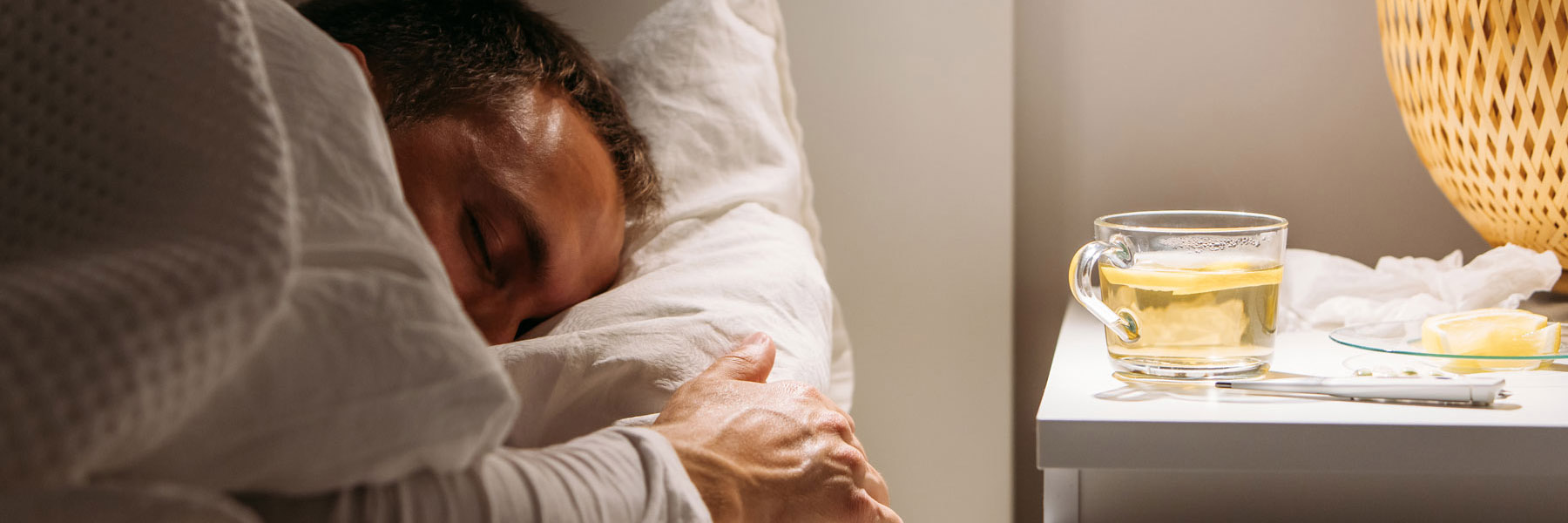Achoo! Homemade Cold Remedies That Work

It’s sniffle season.
The kids are bringing back more than homework from the classroom and holiday preparation (too much stress and too little sleep) is wreaking havoc on our immune system. Can a pesky cold be far behind?
Though far too common —University of Miami Health System family physician Dr. Robert Schwartz says there are more than 2,000 viruses — those regular colds that make our head stuffy and our throats raw have long managed to elude the healing power of science.
Sorry, there’s no cure for the common cold. Not chicken soup, not over-the-counter decongestants, not antibiotics.
“There’s a major misconception that when you get sick, you just take an antibiotic,” Schwartz says. “But antibiotics are for bacterial infection and a cold is viral. With a few exceptions, there’s really no good treatment for the common cold.”
And that exception, he adds, is quite narrow: An elderly person, or someone whose immune system may be compromised, may be running a fever due to a secondary bacterial infection. In that case, it’s essential a physician conduct a physical exam to determine if an antibiotic would be effective.
For most of us, though, a cold is something we endure with tissue and cough drops. We must accept that, depending on a cold’s severity and our body’s ability to martial infection-fighting forces, it could last from five days to two weeks. Unfortunately, “a cough can last several weeks, especially in older patients,” Schwartz says. “Viruses tend to infect different (body) systems at different times and they do a good job of hiding from our immune system.”
There are, however, some inexpensive home remedies that can help
- Start with prevention. Wash your hands, especially when you’ve been around sick people. Don’t touch your nose or face. Get plenty of sleep. Eat right.
- Get a flu shot. Though it won’t protect you from the bug Johnny brought home from preschool, a seasonal flu vaccine does ward three or four influenza viruses that can be pretty vicious. Schwartz says he often encounters patients who believe that last year’s flu shot will help them this year. It won’t. “Every year it’s different,” he says. “The current flu shot provides protection from the viruses that research shows will be the most common for this particular season.”
- Try a saline solution to help with congestion, either in spray form or rinse. While these are easily available over the counter at a neighborhood drugstore, you can also make your own from iodide-free salt and lukewarm boiled or distilled water. (It’s important to always use sterile or boiled water to avoid infection.) Schwartz likes a neti pot, a flushing system often shaped like a teapot that is used to flush or rinse the sinuses and nasal passage. “They’re good for clearing out the thick, crusty congestion you get with a cold,” he says.
- Steam up your bathroom or breathe in the moist heat from a pot of boiling water. This will help you loosen up the yukky crud blocking your airwaves. You can also try a humidifier.
- Drink a hot toddy — or two or three — by adding honey and lemon to an herbal tea. It will help with the congestion. “Anything that warms those areas [throat, trachea, esophagus and, by proximity, lungs] can be helpful. It will help the inflammation [of throat and nose].”
- Drink plenty of fluids, as this keeps your scratchy throat moist and breaks up the irritating congestion.
- Dab a small amount of menthol, eucalyptus or camphor under your nose to help you breathe better. These should be inhaled, not ingested, as they can be toxic.
While there are plenty of over-the-counter meds to alleviate the hacking and sneezing, some people prefer taking homeopathic remedies, such as zinc, Vitamin C and echinacea. Schwartz says the jury is still out on their effectiveness, however. “There just isn’t the evidence-based research to back it up. There’ve been no good control trials that say any of them really work.”
He suggests anyone considering their use should consult a physician first, as herbal remedies can have side effects and hamper the effectiveness of other medications. And if that lousy, rundown feeling persists or gets worse, rush yourself to a doctor.
“When a person has severe symptoms that linger, I tell them to come to the office for an examination,” Schwartz adds. “A physical exam is still important in such cases. You can have a bacterial infection or fluid behind your ear canal or something more serious than just a cold.”

Ana Veciana-Suarez, Guest Contributor
Ana is a regular contributor for the University of Miami Health System. She is a renowned journalist and author, who has worked at The Miami Herald, The Miami News and The Palm Beach Post. Visit her website at anavecianasuarez.com or follow @AnaVeciana on Twitter.
Tags: common cold, Dr. Robert Schwartz, flu, home remedies
